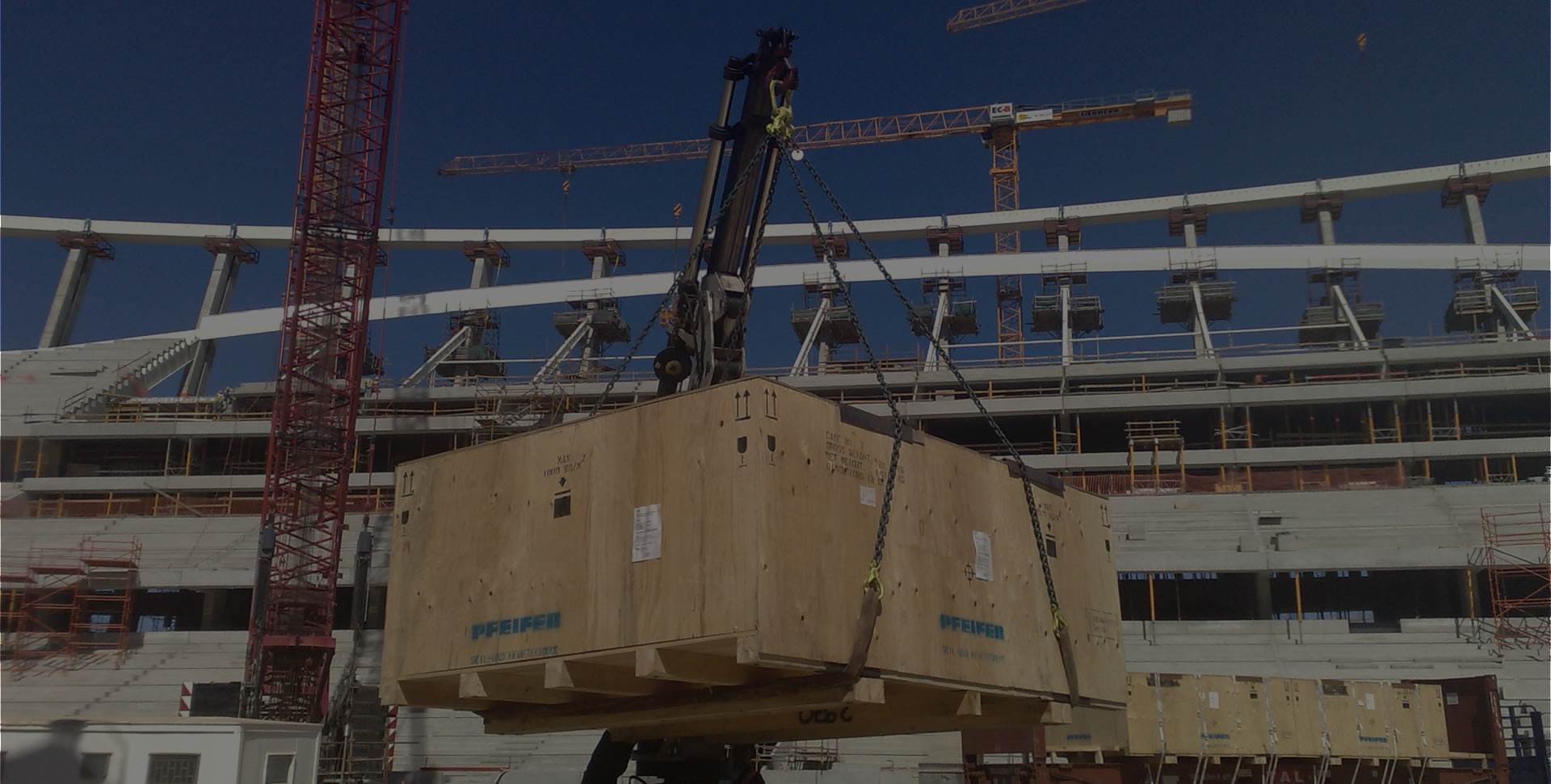Definition Of Logistics
lo’gis’tics / 1.’5f’dzistiks II 1.’5fu-/n:
Involves the integration of the various elements, viz. Road Transport National and Over Border; Abnormal Road Transport; Cranes; Rigging; Access Equipment; Warehousing and Project Management, (services, organizations, people and processes) in the Supply Chain to provide the optimum solution towards total customer satisfaction.
The European Logistics Association defines logistics as:
the organisation, planning, control and execution of the goods flow from development and purchasing, through production and distribution, to the final customer in order to satisfy the requirements of the market at minimum costs and capital use.
The Council of Logistics Management defines logistics management as:
The process of planning, implementing and controlling the efficient, cost-effective flow and storage of raw materials, in-process inventory, finished goods, and related information from point-of-origin to point-of-consumption for the purpose of conforming to customer requirements.
The business definition of logistics:
Logistics is defined as a business planning framework for the management of material, service, information and capital flows. It includes the increasingly complex information, communication and control systems required in today’s business environment. — (Logistix Partners Oy, Helsinki, FI, 1996)
The military definition of logistics:
The science of planning and carrying out the movement and maintenance of forces…. those aspects of military operations that deal with the design and development, acquisition, storage, movement, distribution, maintenance, evacuation and disposition of material; movement, evacuation, and hospitalization of personnel; acquisition of construction, maintenance, operation and disposition of facilities; and acquisition of furnishing of services. — (JCS Pub 1-02 excerpt)
The definition of Cradle-to-Grave:
Logistics planning, design, and support which takes in to account logistics support throughout the entire system or product life cycle. — (MDC, LogLink / LogisticsWorld, 1997)
The definition of 4PL – Fourth Party Logistics:
Fourth-party logistics is an integrator that assembles the resources, capabilities and technology of its own organization to design, build and run comprehensive supply chain solutions.
It acts as a single interface between the client and multiple logistics service providers.
The 4 PL organization is a supply chain integrator and acts as a single interface between clients and the full scope of supply chain services.
1PL The owner of the goods Manufacturer / Shipper / Consignee
2PL The actual transportation / Carrier / Airline / Shipping Line
3PL Asset based Logistics Service Provider / Freight Forwarder
4PL Non-Asset based Supply Chain Management / consulting / Project Management






